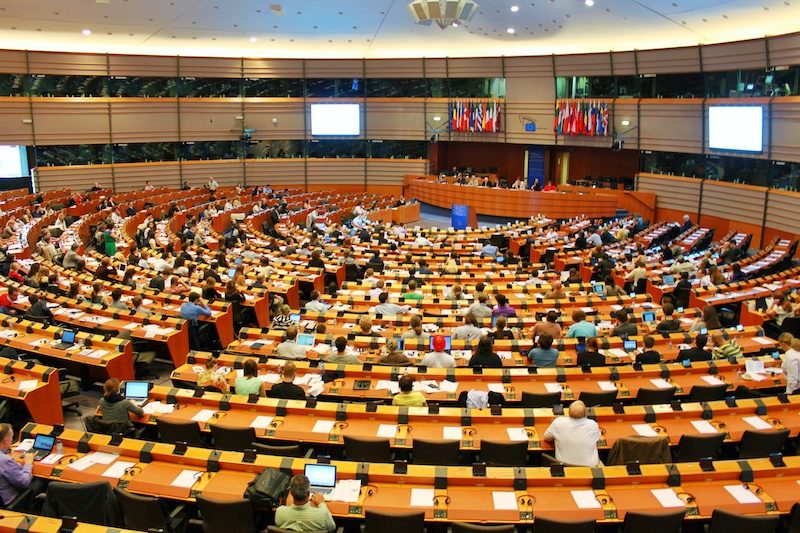CIUS European sugar users’ group backs calls to maintain existing EU market trading systems

CIUS, the committee of European Sugar Users has placed its support behind the EU Commission and Council in arguing against any changes to the present operation of the region’s sugar markets, reports Neill Barston.
A key meeting between the sugar organisation, the EU Commission and European Parliament (pictured) earlier this week had examined legislation surrounding agricultural products that saw the Parliament lobby to create additional operating regulations in a bid to reform the Common Agricultural Policy, which sparked industry concern.
“The European Parliament’s position to support a more regulated sugar market is incomprehensible. The European sugar sector is very competitive and already protected by highly restricted imports of sugar that are currently at record lows”, says the Secretary-General of CIUS, Muriel Korter (pictured below), who also serves as Director General of CAOBISCO, the European chocolate, biscuit and confectionery sector association.

“Adding more intervention tools is totally unnecessary and would be detrimental to the entire competitive sugar supply chain,” she added of the situation regarding sugar regulation.
According to CIUS, returning to a system of market intervention instead of market orientation, would give ‘a very wrong signal’ to the sugar market – which still remains highly regulated, with management tools available to help the sugar sector and a highly restricted import regime.
However, exports and production of sugar have been freed since 2017, after the last CAP Reform. EU Sugar beet growers and manufacturers are considered to be very competitive, and the sector believed there was no requirement for additional safety net legislation.
The existing Private Storage Aid for sugar linked to the reference price and the existing crisis reserve, are available in case of severe market disturbances. Additional safety nets are unnecessary and would undoubtedly add more complexity to the market. In addition to the available tools in the current CMO Regulation, many Member States have granted Voluntary Coupled Support (VCS) to aid their national beet sector.
Notably, as sugar beet production and yields have been affected by the yellow disease, major producing countries have reintroduced the right to use neonicotinoids on beet plantations.
Sugar imports
As CIUS explained, EU Stakeholders should be given an accurate analysis of the sugar market dynamics and realities. Sugar imports are relatively low for the moment, although they are needed to compensate for the insufficient EU sugar production. In parallel, the world market has also seen very low prices, even if it is not recovering those last couple of months.
Significantly, this has also an impact on EU market prices. However, the low average EU sugar prices reported by the European Commission in recent years do not reflect the realities of the spot and forward markets within Europe. For instance, they include sugar intercompanies flows which do not reflect end user prices, and they can’t accurately report the significant volumes that have been contracted with hedging models, where invoiced price is not in line with hedged prices.
Reports on spot market prices show a significant difference with the EU reported prices that fail to give and accurate reality of the market: in average, these last 12 months, when adding transport costs evaluated at EUR 20-30 /mT, the price gap between the EU reported price and the spot market price is of +/- 10% . This March, some small and medium-sized companies have testified that they were currently facing supply issues, while the EU Commission is forecasting record low sugar end stock levels at only 1 million mT for October.
Given this low stock and tight supply, sugar users need to be able to easily access to duty-free imports to compensate the fact that many sugar beet producers are sold-out and cannot supply any additional demand.
CIUS added that it believes that by improving the EU’s market monitoring like the EU Commission is currently undertaking with the newly implemented Market Transparency Regulation, should hopefully improve the analysis of market dynamics in the future.


